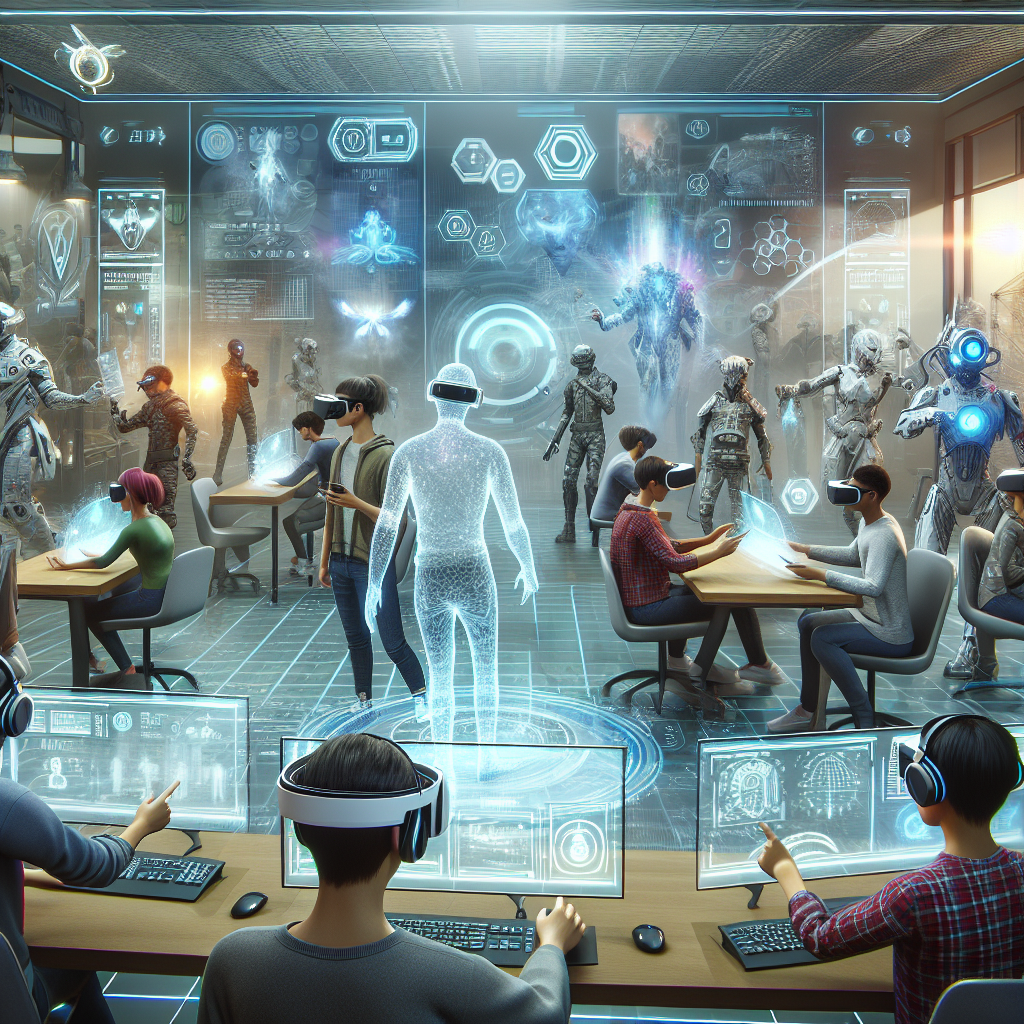[ad_1]
Introduction
The evolution of gaming has transformed significantly in the last few decades. What was once a simple pastime is now a multi-billion dollar industry, with virtual reality (VR) paving the way for an immersive experience like no other. As we delve deeper into the concept of multiplayer gaming within these virtual realities, it becomes evident that the future is teeming with possibilities.
The Rise of Virtual Reality
What is Virtual Reality?
Virtual reality is a simulated experience that can either replicate the real world or create an imaginary environment. VR applications are widely used in gaming, training, education, and entertainment.
Key Developments in VR Technology
- Advancements in hardware: Headsets like Oculus Rift, HTC Vive, and PlayStation VR.
- Enhanced graphics and processing power.
- Improved motion tracking and haptic feedback systems.
The Importance of Multiplayer Experiences
Multiplayer gaming has been a driving force behind many successful titles. It encourages social interaction, teamwork, and competition. By leveraging virtual reality, developers can create more engaging and immersive multiplayer experiences.
Advantages of Multiplayer VR Gaming
- Enhanced Interaction: Players can interact in real-time as avatars.
- Immersive Environments: Realistic worlds heighten the gaming experience.
- Collaborative Gameplay: Promotes teamwork through shared objectives.
The Future of Multiplayer VR Gaming
Projected Growth and Trends
According to a report by Newzoo, the VR gaming market is expected to reach $12 billion by 2024, growing at a compound annual growth rate (CAGR) of approximately 30%.
Emerging Trends in Multiplayer VR gaming
- Cross-platform multiplayer capabilities.
- Integration of augmented reality (AR) for mixed experiences.
- AI-driven character interactions that enhance realism.
Interactive Table: Key Statistics in VR Gaming
| Year | Market Size (in Billion USD) | Growth Rate (%) |
|---|---|---|
| 2019 | 1 | – |
| 2020 | 1.5 | 50 |
| 2021 | 2.5 | 66.67 |
| 2024 | 12 | 30 |
What Makes Multiplayer VR Special?
“The metaverse will be the next big thing, blending digital environments with real-life interactions.” – Tech Innovator
Multiplayer VR games are distinct from traditional gaming due to the level of immersion they bring. Players can step into another world, interact with friends as though they are physically present, and go on adventures that push the boundaries of conventional gaming.
Community Building
Online communities form the backbone of multiplayer gaming. VR takes this a notch higher by allowing players to experience a sense of presence, making bonding and friendships feel more authentic.
Challenges in Virtual Reality Multiplayer Gaming
Technical Limitations
While VR technology has made enormous strides, challenges still exist:
- Costs: High-quality VR equipment can be expensive.
- Space Requirements: Players require a safe play area.
- Motion Sickness: Some users may experience discomfort in VR.
User Engagement
Keeping players engaged in VR environments requires constant innovation and refreshing content that can compete against rapidly evolving gaming landscapes.
Conclusion
The future of multiplayer gaming lies within the realms of virtual realities. With advancements in technology and a growing community of players seeking immersive experiences, VR has the potential to revolutionize the gaming industry. As developers continue to innovate and overcome existing challenges, virtual realities will redefine how we connect, compete, and play in exciting, new ways.
Frequently Asked Questions (FAQ)
1. What is the difference between virtual reality and augmented reality?
Virtual reality immerses the user in a completely digital environment, while augmented reality overlays digital elements onto the real world.
2. What are the common platforms for multiplayer VR gaming?
Common platforms include Oculus, HTC Vive, and PlayStation VR, as well as various PC gaming setups that support VR capabilities.
3. Do I need special equipment to play VR games?
Yes, you’ll need appropriate hardware, which usually includes a VR headset and sometimes additional sensors and controllers.
4. Can I play multiplayer VR games with my friends?
Absolutely! Many VR games offer multiplayer modes where you can connect with friends in immersive worlds.
[ad_2]
